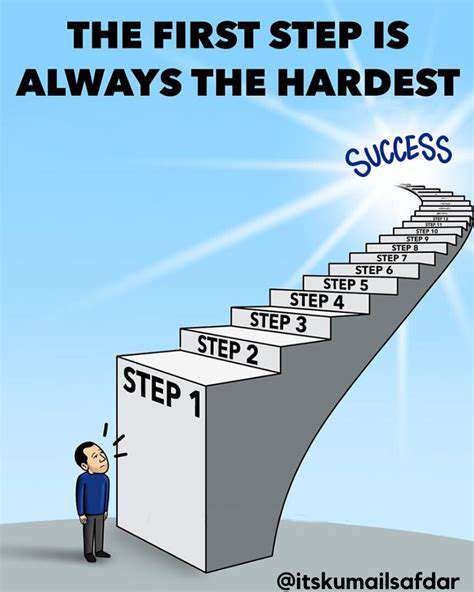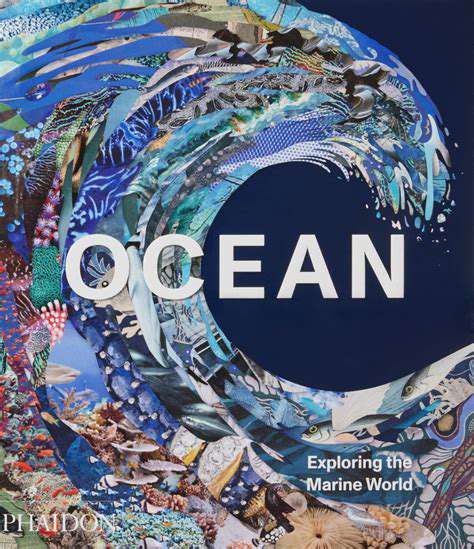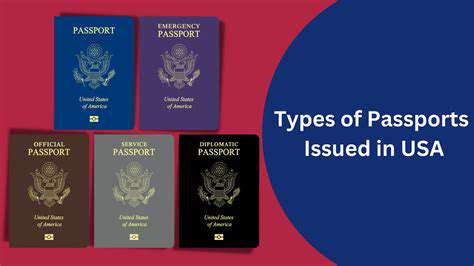How to Deal with Lost Luggage [Steps & Tips]

Identifying Lost Luggage
When your luggage goes missing, the first step is to identify it. This involves checking the details of your checked baggage tag, which should contain crucial information like the airline, flight number, and your booking reference. Careful examination of this tag is essential for accurate reporting. Also, compare the tag to any pictures you might have taken of your luggage before checking it in. This visual comparison can help identify any discrepancies or potential confusion.
If possible, describe the luggage's features, such as its size, color, and any distinctive markings or logos. This detailed description will assist airline personnel in locating your luggage and help distinguish it from others. Remember to take note of anything unique or unusual about your luggage, as this can be vital for its retrieval.
Filing a Lost Luggage Report
Once you've identified your missing luggage, it's time to file a report with the airline. This usually involves filling out a form online or at the airport's baggage claim counter. Provide accurate and complete information to ensure the airline can properly track your case. Include details like your flight number, booking reference, and a detailed description of the missing luggage.
Be prepared to provide supporting documentation, such as your boarding pass and baggage claim tag. These documents will be crucial in verifying your claim and accelerating the process of finding your belongings. This detailed reporting process ensures your claim is handled efficiently and professionally.
Contacting the Airline
Following the filing of your lost luggage report, contacting the airline is crucial for updates on the status of your claim. This can involve calling the airline's customer service number or checking their website for online support options. Prompt communication with the airline is vital for monitoring the progress of your luggage retrieval. Be prepared to provide your booking reference and any other relevant information to expedite the process.
Understanding Airline Policies
Understanding the airline's specific policies regarding lost luggage is essential. Different airlines have different procedures and timeframes for investigating and resolving lost luggage claims. Familiarize yourself with these policies to understand the steps involved and potential delays. Knowing the airline's policies will help you anticipate the process and understand the timeframe for your claim to be resolved.
Documentation and Evidence
Thorough documentation is crucial when dealing with lost luggage. Keep copies of all forms, reports, and correspondence with the airline. Documenting every interaction and piece of information will help with any potential future inquiries or disputes. This documentation ensures that your claim is tracked effectively and that you have a record of all communication and actions taken. Taking photos or videos of your luggage before checking it in can also be valuable evidence.
Claiming Your Luggage
After following the steps above, you'll need to follow up on your claim, regularly checking for updates on your luggage's whereabouts. Staying informed about the status of your claim is essential for timely retrieval of your belongings. Keep in contact with the airline to remain updated on the progress of your claim and when you can expect to receive your luggage. They may provide an estimated time for retrieval or contact you if your luggage is found.
Contacting the Airline or Airport: Navigating the Claim Process

Initial Steps for Contact
When encountering a travel issue, such as a delayed flight or lost luggage, the first step is to contact the relevant airline or airport authority. This prompt action can often expedite resolution and minimize potential complications. Gathering necessary information, like your flight number, booking reference, and contact details, is crucial to ensure a smooth communication process. This organized approach allows for clear and efficient communication, ultimately speeding up the process of resolving the problem.
Prompt communication is key to resolving travel issues quickly. Providing the correct details, from your flight number to your passport information, can make a significant difference in the efficiency of the resolution process. Don't hesitate to reach out early on, as many issues can be addressed more easily before they escalate.
Methods of Contact
Airlines and airports offer various communication channels. These include phone calls, online chat support, email, and social media channels. Each method has its own advantages and limitations, so it's wise to explore all available options and choose the one that best suits your needs and the urgency of the situation. Consider the time commitment required for each method and the potential for immediate response.
Specific Procedures for Luggage
If your luggage is lost or delayed, following specific procedures outlined by the airline is essential. You need to file a formal claim with the airline, providing details about the missing luggage. This includes the luggage tag number, a description of the items lost, and any supporting documentation. Documenting the situation thoroughly is extremely important for a successful recovery. Be prepared to provide any requested additional information to expedite the process.
Proper documentation is crucial for processing a luggage claim. This can involve taking photos of the luggage tag, providing copies of your tickets, and collecting any relevant receipts for the items. Thorough documentation will significantly increase the chances of a successful resolution.
Important Considerations
Maintaining a record of all communication, including timestamps and details, is recommended. This detailed record will prove invaluable if further action or escalation is necessary. Be polite and professional in your interactions, even if the situation is frustrating. Remember that maintaining a calm and collected demeanor can significantly improve the outcome of your communication.
Keeping a detailed record of your interactions, including timestamps and summaries of conversations, is important. This comprehensive documentation will be helpful if you need to escalate the issue or provide evidence later on. This record can be invaluable in the event of future disputes.
Exploring Alternative Solutions: Beyond the Airline
Exploring Ground Transportation Alternatives
When your flight is delayed or your luggage is lost, the last thing you want is to be stranded without a way to get where you need to be. Ground transportation options can provide crucial mobility during such situations. Relying solely on airline-provided assistance can sometimes be inadequate or slow, leaving you in a challenging position. Consider alternative methods like taxis, ride-sharing services, or even pre-arranged car rentals to get to your destination quickly and efficiently. This is especially important if you have important appointments or need to get to your hotel or accommodation as soon as possible.
If you are traveling with substantial luggage and need reliable transport, a pre-booked car service could be your best choice. This can often streamline the process of getting to your accommodation or a temporary storage location. Compare prices and services, and ensure that the chosen mode of transportation can handle the size and weight of your luggage.
Contacting the Airline and Filing a Claim
While ground transportation can help with immediate needs, contacting the airline and filing a formal claim is crucial for getting your lost luggage recovered and potentially compensated for any associated expenses. Be prepared to provide detailed information about your flight, the missing luggage, and any associated costs. Thorough documentation is essential during this process, including receipts, photos, and any other evidence that can support your claim.
Understand the airline's policies regarding lost luggage claims. Different airlines have varying procedures and timeframes for handling these situations. Familiarize yourself with these policies to ensure you are taking the correct steps and not missing any key deadlines for filing your claim.
Utilizing Hotel Services and Amenities
Hotels can often provide valuable support during a lost luggage situation. They frequently have facilities for storing your belongings temporarily, which can be a great solution to keep your essentials accessible while you navigate the process of getting your luggage back. Utilize this facility if appropriate and available. Contact the hotel's front desk staff to discuss the possibility of temporary storage and any associated fees.
Seeking Help from Travel Agencies or Tour Operators
If you are traveling with a tour operator or travel agency, reach out to them immediately for assistance. They can often offer guidance and support in handling the logistics of your lost luggage, potentially streamlining the process and providing access to resources you might not have otherwise known about. They may have pre-existing contacts or relationships with the airline that can expedite the process. These professionals can often offer valuable insights and facilitate solutions that you might not be able to find on your own.
Exploring Alternative Accommodation Options
In severe cases where your luggage contains essential items, like medications or personal documents, or if your flight is delayed for an extended period, consider alternative accommodation options. This could be a temporary stay at a hotel or a friend or family member's place. Having a temporary place to store your personal belongings can prove invaluable while you resolve the issue of your lost luggage and get your essential belongings back. This can help reduce stress and ensure you have a place to rest and organize yourself.
Understanding Your Rights and Seeking Legal Counsel (If Necessary): Protecting Your Interests
Understanding Your Rights
Knowing your rights is crucial in navigating various situations, from everyday interactions to complex legal matters. Understanding these rights empowers you to make informed decisions and protect your interests. This knowledge can prevent potential harm and ensure that you are treated fairly. It's important to remember that rights vary depending on the specific context, whether it's related to employment, consumer transactions, or personal relationships. Thorough research and a clear understanding of the applicable laws are essential for effective advocacy.
Different jurisdictions have different legal frameworks, so it's vital to be aware of the specific laws that govern your situation. For example, employment rights differ significantly from consumer rights, and both differ from property rights. This nuanced understanding is key to effectively asserting your rights and holding others accountable. Seeking legal advice when necessary can further illuminate your rights and responsibilities within the specific context of your situation.
Seeking Legal Counsel (If Necessary)
Sometimes, understanding your rights alone isn't sufficient to protect your interests. Complex legal situations, disputes, or potential legal liabilities may necessitate the expertise of a legal professional. Seeking legal counsel from a qualified attorney can provide invaluable guidance and support when navigating intricate legal procedures and processes. A legal professional can analyze your specific circumstances, explain your rights and potential obligations, and advise on the best course of action.
When deciding whether to seek legal counsel, consider the complexity of the issue, the potential financial or personal consequences, and the possibility of legal disputes or proceedings. An attorney can help you prepare for potential court proceedings or negotiations. They can also help you understand the legal implications of your actions and the potential outcomes of different strategies. It's important to remember that seeking legal counsel is a proactive step towards protecting your interests and achieving a favorable resolution.
Finding a reputable and qualified attorney is essential. Researching attorneys with relevant experience in your area of concern is crucial. Consider factors such as their experience, success rate, and communication style. A strong attorney-client relationship built on trust and open communication is vital for effective representation.
Legal representation can be a significant investment, so understanding your options and the potential costs involved is important. Many attorneys offer initial consultations to discuss your situation and provide guidance on potential fees and services. This can help you make an informed decision about whether legal counsel is the right approach for your specific needs.
Ultimately, the decision to seek legal counsel is a personal one. However, if you feel your rights are being jeopardized or you're facing a complex legal situation, seeking professional assistance can be a crucial step in protecting your interests and achieving a positive outcome.



![Best Diving Spots in the Caribbean [Underwater Guide]](/static/images/27/2025-05/TipsforPlanningYourCaribbeanDivingAdventure.jpg)



![Best Travel Gear You Can't Travel Without [2025]](/static/images/27/2025-06/ComfortandConvenience3AYourTravelCompanions.jpg)
![Guide to Visa Requirements for the Schengen Area [2025]](/static/images/27/2025-06/ImportantConsiderationsandTipsfor2025.jpg)


![Guide to Visa Requirements for Canada [2025]](/static/images/27/2025-06/PermanentResidency3ABuildingaFutureinCanada.jpg)